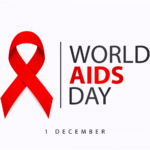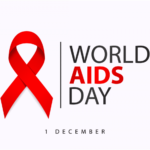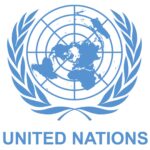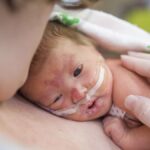UNICEF Amplifies Efforts to Enhance Adolescent Health in Lagos Communities

In a concerted push to bolster the health and well-being of adolescents, the United Nations Children’s Fund (UNICEF) has intensified its campaigns aimed at addressing the pressing concerns of youths. Collaborating closely with the Lagos State Agency for the Control of AIDS (LSACA), the organization is taking proactive strides through community outreach initiatives.
The challenges faced by adolescents encompass a wide spectrum, spanning physical health, mental well-being, nutrition, education, hygiene, and access to essential services.
UNICEF’s impactful journey included visits to communities such as Tolu in the Ajeromi-Ifelodun Local Government Area and the Empire Community in Surulere, Lagos. The endeavor extended its reach to critical locations including the Yello Lagos Adolescent and Youth Friendly Centre at LASUTH, Ikeja, and the Iwaya Primary Health Centre in Lagos Mainland LGA.
Dubbed ‘YAaHNaija,’ this outreach is strategically tailored to equip children and adolescents with the crucial knowledge needed to navigate the path to adulthood.
Underpinned by the support of the National Agency for the Control of AIDS (NACA), this community engagement has facilitated comprehensive healthcare services. The dedicated healthcare personnel offered HIV status assessments, COVID-19 vaccinations, and essential immunizations for children within these localities.

In the midst of this remarkable initiative, Mireille Tribie, UNICEF’s Regional HIV Specialist for West and Central Africa, voiced concern about the health conditions observed in these visited communities. She emphasized the immense significance of Nigeria due to its population and impact on the global stage, asserting that the nation’s challenges reverberate far beyond its borders.
Tribie underscored the importance of nurturing children as they transition into adolescence, preparing them to become responsible adults and leaders who will make critical decisions on behalf of the population.
She stated, “UNICEF’s commitment ensures that children always have a voice in all contemporary issues. The 2023 National Conference on Adolescent Health offers a platform to directly listen to the perspectives of young people, which will be invaluable in shaping strategies to safeguard their holistic well-being.”
Another key figure in this crusade, Lu Wei Pearson, Associate Director of Health and Maternal and Newborn Child Health Section Chief at UNICEF, stressed the collective responsibility required to effect substantial improvements in adolescent well-being. Pearson emphasized that this encompassed a range of areas beyond healthcare, including education, employment, mental health, physical exercise, and housing.
She articulated, “Challenges are manifold, and it’s vital for both government bodies and civil societies to collaborate on solutions. Young people must also take the initiative to craft their own solutions, ensuring they receive proper schooling and nutrition, adopt healthy lifestyles, and evade harmful behaviors.”
The spotlight was firmly directed at the Ajeromi-Ifelodun Local Government Area and the Empire Community in Surulere. Evident gaps in conducive living conditions underscored the pressing need for transformative action.
Pearson highlighted UNICEF’s commitment to supporting the government’s mission to provide comprehensive healthcare and essential services for all segments of the population. She elucidated that the primary responsibility lay with governmental bodies at both the federal and local levels.
“The Nigerian government has set forth ambitious plans to deliver primary healthcare and essential services to every corner of the populace. This is where UNICEF steps in to bolster the government’s vision. In urban slums like this, challenges are myriad – cramped living conditions and inadequate sanitation. While UNICEF does play a role, the onus primarily falls on governmental and local bodies to take charge. Where gaps or additional areas requiring support emerge, UNICEF stands ready to lend a hand. Our dedication is to the welfare of children, women, and their best interests,” Pearson affirmed.



